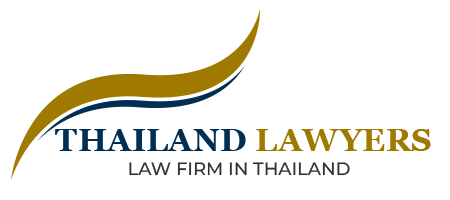Translation and legalization services in Thailand are essential for both foreigners and Thai nationals who need to use official documents across international jurisdictions. Whether it’s for visa applications, business transactions, court proceedings, or academic purposes, ensuring that a document is properly translated, certified, and legalized is a crucial step in making it legally recognized.
This guide provides in-depth insights into the processes, requirements, and authorities involved in translation and legalization services in Thailand.
1. Understanding Translation and Legalization in Thailand
Translation and legalization are two distinct but interconnected processes:
-
Translation: Converting a document from one language (e.g., Thai to English) while ensuring accuracy and compliance with official terminology.
-
Legalization: Certifying a document’s authenticity so that it is legally recognized in a foreign country.
💡 Why is this important?
Foreign governments, embassies, and institutions only accept properly translated and legalized documents to prevent fraud and ensure compliance with legal requirements.
2. Commonly Translated and Legalized Documents
For Personal Use
✔ Birth, marriage, and divorce certificates
✔ Passports and identification documents
✔ Educational transcripts and diplomas
✔ Medical reports and vaccination records
✔ Police clearance certificates
✔ Power of attorney
For Business and Corporate Use
✔ Company registration documents
✔ Memorandum of Association (MOA)
✔ Financial statements
✔ Contracts and agreements
✔ Intellectual property registrations
✔ Work permits
3. The Process of Translation in Thailand
Step 1: Choosing a Certified Translator
Not all translators in Thailand are recognized for legal purposes. The document must be translated by a professional or accredited translator who understands both the legal and linguistic aspects of the content.
Key Considerations When Selecting a Translator:
✅ Must be certified by the Ministry of Justice or Ministry of Foreign Affairs (MFA)
✅ Must have experience in legal, business, or technical translations
✅ Must ensure accuracy and official terminology compliance
Step 2: Certification of the Translation
Once translated, the document must be certified by a recognized entity. This means confirming that the translation is accurate and complete.
Where to get translation certification?
✔ Translation service providers accredited by the Thai Ministry of Justice
✔ Embassies or consulates
✔ Law firms or notary public offices
💡 Important Note:
A translated document without proper certification may be rejected by Thai and foreign authorities.
4. The Legalization Process in Thailand
Once a document is translated and certified, it must be legalized by the appropriate government offices.
Step 1: Notarization by a Notarial Services Attorney
Thailand does not have Notary Publics like in Western countries. Instead, lawyers registered with the Thai Lawyers Council can provide notarial services to confirm a document’s authenticity.
📌 When is notarization required?
✔ Legal documents for international use
✔ Power of attorney or affidavits
✔ Business agreements for foreign jurisdictions
Step 2: Legalization by the Ministry of Foreign Affairs (MFA)
The Department of Consular Affairs at the Ministry of Foreign Affairs (MFA) in Bangkok is responsible for document legalization.
Documents Required for MFA Legalization:
✔ The original document
✔ The certified translation
✔ A copy of the requester’s passport or Thai ID card
Processing Time and Fees:
📌 Standard processing time: 2-3 business days
📌 Express service: Available for urgent cases
📌 Fees: Varies depending on document type
Step 3: Legalization by the Embassy or Consulate
If the document is intended for use in another country, it may need further legalization by the relevant foreign embassy or consulate in Thailand.
Examples:
-
If a Thai person is applying for a U.S. visa, their birth certificate must be translated, certified, and legalized by the MFA and the U.S. Embassy.
-
If a foreigner wants to get married in Thailand, they must have their single status affidavit translated, notarized, and legalized.
💡 Embassy legalization is the final step before the document is legally accepted abroad.
5. Apostille vs. Legalization: What’s the Difference?
Some countries use the Apostille system under the Hague Convention, which eliminates the need for embassy legalization. However, Thailand is not a member of the Hague Apostille Convention.
📌 What does this mean?
All documents in Thailand must go through the full legalization process (translation, certification, MFA legalization, and embassy authentication) to be recognized abroad.
💡 For documents intended for Hague Convention countries, additional legalization may be needed in the destination country.
6. Challenges and Common Mistakes in Translation and Legalization
🚨 Mistakes to Avoid:
❌ Using an unauthorized translator—results in rejection.
❌ Skipping MFA legalization—the document won’t be accepted internationally.
❌ Errors in translation—incorrect terminology can cause legal issues.
❌ Failing to check embassy requirements—each embassy has its own procedures.
🔴 Solution: Work with experienced legal translation professionals who specialize in handling official documents.
7. Costs and Timeline for Translation and Legalization in Thailand
| Service | Estimated Time | Cost (THB) |
|---|---|---|
| Translation | 1-3 business days | 500 – 3,000 per page |
| Notarization | 1 business day | 1,000 – 5,000 per document |
| MFA Legalization | 2-3 business days | 200 – 400 per document |
| Embassy Authentication | Varies by country | 500 – 5,000 per document |
📌 Expedited services are available at higher fees for urgent cases.
8. Conclusion: Ensuring Compliance with Thai and International Laws
Translation and legalization services in Thailand are essential for international transactions, visa applications, legal matters, and business operations. By following the correct translation, certification, and legalization procedures, individuals and businesses can avoid unnecessary delays and legal complications.
✔ Always use accredited translators and authorized legalization services.
✔ Check with the MFA and relevant embassies for specific requirements.
✔ Avoid shortcuts—incorrectly processed documents can be rejected or cause legal issues.
For hassle-free processing, many people opt to work with law firms, legal consultants, or certified translation agencies to ensure compliance with Thai and international laws.

